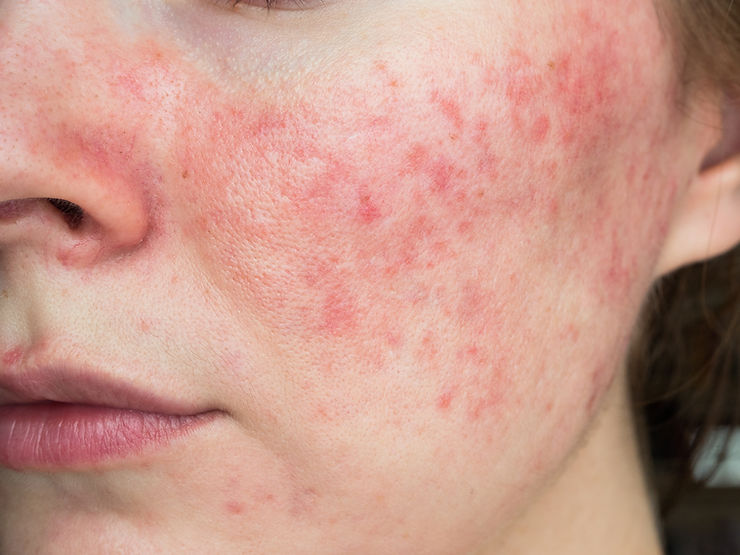Laura J. Anderson, M.D., F.A.C.S. and
VanBuren R. Lemons, M.D., F.A.C.S.
“Perhaps nowhere else in dermatology is so little known about a condition that affects so many” ~ Jonathan Wilkin, M.D.
Rosacea is a chronic skin condition that primarily affects the face, causing redness, flushing, visible blood vessels, and in some cases, acne-like breakouts. It is sometimes referred to as “Curse of the Celts” because of its common occurrence among the Celtic people. While rosacea is primarily considered a skin disorder, there have been some observations and studies suggesting potential neurological impacts associated with the condition. However, it’s important to note that the exact relationship between rosacea and neurological changes is still not fully understood, and further research is needed to establish a definitive connection. Here are some aspects that have been explored:
1. Neurogenic inflammation: Neurogenic inflammation refers to inflammation caused by the release of neuropeptides from nerve endings. In rosacea, it has been proposed that certain triggers, such as heat, sunlight, or spicy foods, can activate sensory nerves in the skin, leading to the release of neuropeptides that contribute to inflammation. This neurogenic inflammation may play a role in the development and progression of rosacea symptoms.
2. Facial pain and sensory abnormalities: Some individuals with rosacea may experience facial pain or discomfort, which can be related to neurovascular abnormalities. Additionally, sensory abnormalities, such as increased sensitivity to touch or temperature changes, have been reported in some rosacea patients. These sensations may be related to altered nerve function in the affected areas.
3. Increased risk of neurological conditions: Some studies have suggested a potential association between rosacea and certain neurological conditions. For example, a 2017 study published in JAMA Neurology found an increased risk of Parkinson’s disease in individuals with rosacea. However, it’s important to note that the link between rosacea and neurological disorders is still speculative, and more research is needed to establish a causal relationship.
4. Psychological impact: Although not directly related to neurological changes, the visible symptoms of rosacea, such as redness and flushing, can have a significant psychological impact on individuals. Feelings of embarrassment, self-consciousness, and anxiety can arise, leading to stress-related neurological responses.
It’s worth emphasizing that while these neurological impacts have been observed or suggested in some studies, the understanding of the underlying mechanisms and the overall significance of these associations is still evolving. If you have concerns about neurological symptoms or impacts related to rosacea, it’s recommended to consult with a healthcare professional who can provide appropriate evaluation and guidance based on your specific situation.
Methods of Diagnosis:
Acne
Allergic Dermatitis
Seborrheic Dermatitis
Perioral Dermatitis
Lupus Erythematosis
Iatrogenic (corticosteroid ointment)
* Diagnosis: punch biopsy
Treatment Options:
Antibiotics
Tetracycline
Minocycline
Doxycyclin
MetroGel
Zinc Oxide (anti-inflammatory)
Hemp Oil, Jojoba Oil (anti-inflammatory)
Azaleic Acid (anti-inflammatory)
Accutane (anti-inflammatory)
Aloe Vera
Propranolol (beta-blocker)
Clonidine (alpha-antagonist)
Pulsed Dye Lasers
Intense Pulsed Light



